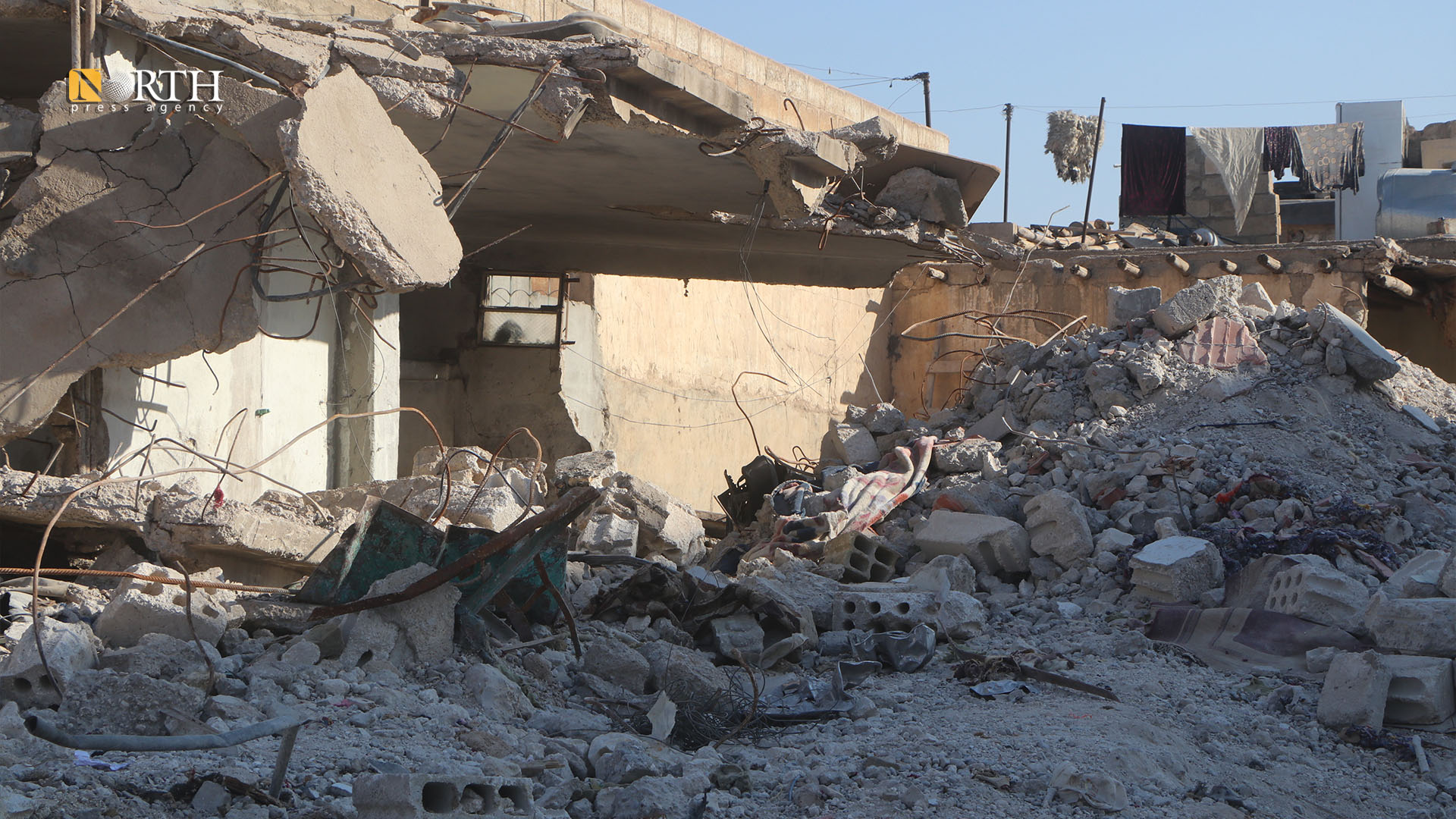HASAKH, Syria (North Press) – Hani Orwa, a 36-year-old-man, stands amidst the debris of his house which was completely destroyed in battles between the Syrian Democratic Forces (SDF) with the support of the US-led Global Coalition on the one hand and the Islamic State Organization (ISIS) sleeper cells, who took his house as a hideout, on the other.
Orwa, who is a government employee, has lost two houses, all were razed to the ground.
Ten days later; after the battle finished, Orwa returned home, but like other neighbors, he was shocked to see the demolished houses and the wreckage.
The debris left by battles in al-Sina’a prison and the surrounding areas are still present among the residents’ houses. Damaged, destroyed and ramshackle buildings can still be seen.
Nowadays, people are trying to retrieve everything that can be used again from under the rubble, even if they are their children’s toys. Other people try hard to clean their houses form debris and women busy clean the rooms.
Some people who returned home complained about the destruction of services system and non-compensation of the those whose houses were destroyed.
Orwa, a father of four, said none of the humanitarian organization functioning in northeast Syria nor the Autonomous Administration of North and East Syria (AANES) have offered compensation.
Pointing to his destroyed house, he said “we no more have a house.”
Events and destruction
Hasakah events started on January 20, as ISIS sleeper cells attacked al-Sina’a prison that used to hold thousands of ISIS inmates before the attack. The SDF has captured them in battlefields during the war on the hardline ISIS organization.
Three explosions took place and ISIS sleeper cells attempted to break their fellow inmates out from the prison. Clashes erupted between the SDF and the ISIS members in the vicinity of al-Sina’a prison as ISIS inmates who escaped the prison fled to the surrounding areas.
Consequently, civilians in the vicinity of the prison fled their homes.
On January 31, the SDF declared full control of the al-Sina’a prison and continued hunting ISIS members. Then, people started to return home gradually. Some found out their houses were completely destroyed and others’ were damaged.
The residents of Guweiran describe their neighborhood as “a stricken area” as 60 houses and shops were damaged or destroyed, according to local people.
Drinking water networks and pipes were also affected in the battle denying access to water into the southern neighborhoods of Hasakah.
Additionally, the Guweiran bakery was out of service because the bakery was located in an area ISIS escapees managed to control.
Locals of Guweiran neighborhood demand the acceleration provision of essential services, specially bread, and clearing the area from the wreckage.
No services
The 51-year-old Farhan al-Salem, another resident of Guweiran, told North Press, “services are almost absent, garbage is still on the streets wreckage is still there, People are trying their best to clean them.”
Al-Salem, a father of eight, said the residents of Guweiran are of the low-income people, “They cannot afford high-cost bread from private bakeries, locally known as Siyahi bread.”
“Situation in the neighborhood is miserable,” he added.
Majda Amin, co-chair of the Hasakah-based Municipality and Environment Committee, said garbage is thrown on streets as cleaning workers suspended work during the ten-day battle with ISIS.
Amin told North Press campaign of cleaning Hasakah streets from the garbage and debris will last a whole month.
But, Ayda al-Hamad, a 47-year-old woman of Guweiran, does not feel optimistic about Amin’s speech.
Conditions in Guweiran are tragic. “So far, no party or organization have visited us,” she said angrily.
Standing in a demolished house, al-Hamad called to consider their situation as a humanitarian issue.
“The battle has affected the Guwerian’s people who lost their houses, properties and belongings.”

